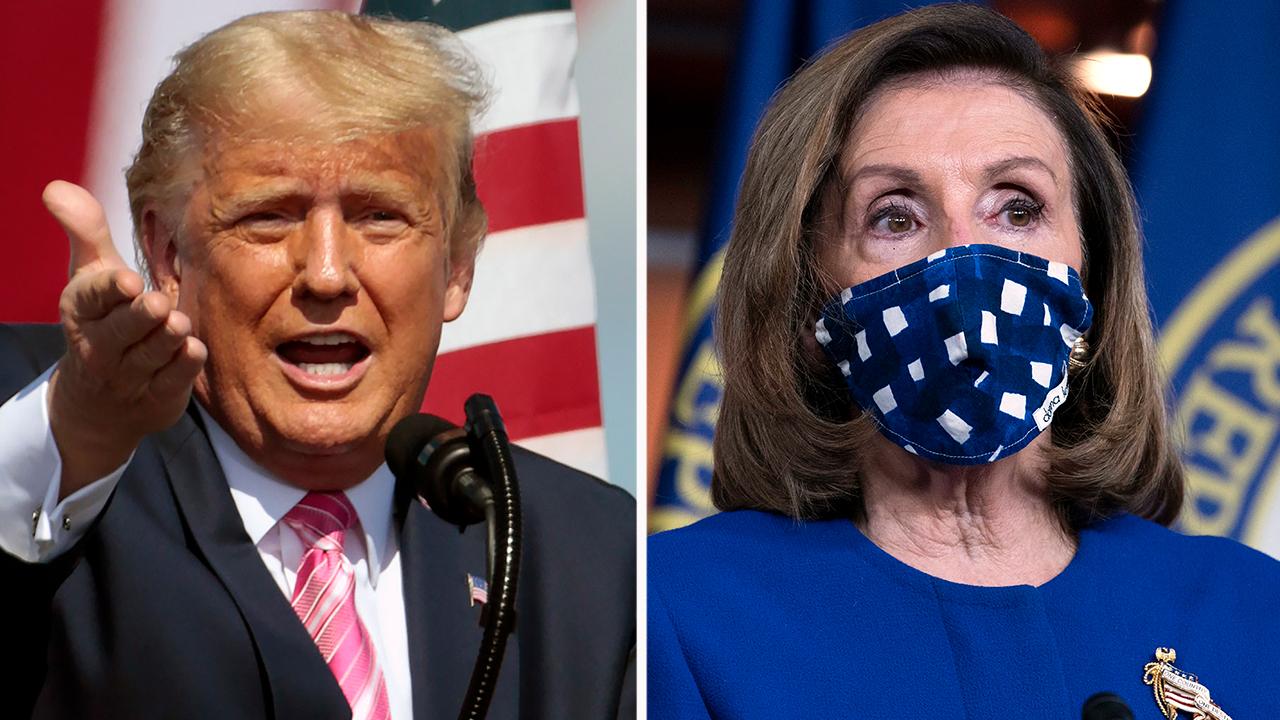US economic recovery could stall out if Congress doesn't pass more coronavirus aid, experts warn
Fed officials warn economy faces lackluster recovery without more coronavirus relief
Despite months of wrangling between White House officials and Democratic leaders over another round of coronavirus relief, a deal before the November election appears increasingly unlikely, threatening to imperil the nation's recovery from the pandemic.
Federal Reserve officials have warned that without additional stimulus, the economy faces a lackluster rebound that's akin to the aftermath of the 2008 financial crisis, when a massive spending package was followed by years of austerity that dragged on growth.
“This is not a good time to have fiscal policy switch from being accommodative to creating a drag,” former Fed Chairwoman Janet Yellen told The Wall Street Journal. “That’s what happened, and it retarded the recovery.”
TRUMP SAYS HE WANTS A BIGGER CORONAVIRUS RELIEF PACKAGE THAN PELOSI'S $2.2T PROPOSAL
For close to three months, Congress has struggled to reach an agreement on another round of emergency relief for families and businesses — negotiations first collapsed in early August, prompting Trump to sign four executive measures intended to provide relief to families still reeling from the virus-induced crisis, including temporarily extending supplemental jobless aid at $300 a week.
But that aid is beginning to expire just as COVID-19 cases start to surge again, and lifelines that propped up the economy in the early weeks of the pandemic — like the $670 billion Paycheck Protection Program, a one-time $1,200 stimulus check and sweetened unemployment benefits — lapsed months ago.
On top of that, millions of laid-off workers could lose their jobless benefits altogether by the end of the year, with the enhanced unemployment benefits that Congress approved in March set to expire on Dec. 31.
The concern is that without additional stimulus measures to prop up consumer spending, the virus-induced crisis could fuel a broader economic collapse, including more layoffs and bankruptcies.
“Premature withdrawal of fiscal support would risk allowing recessionary dynamics to become entrenched,” Fed governor Lael Brainard said Wednesday.
Democrats and Republicans sharply disagree over the size and scope of another relief bill and are billions of dollars apart in their proposals, unable to reconcile key policy differences on issues such as a virus testing plan, aid to state and local governments and tax cuts for low- and middle-income families.
Fed Chairman Jerome Powell has, for months, been a vocal advocate of more aid, pressing Congress to pass another relief package and telling lawmakers to err on the side of overdoing it, rather than take a conservative approach that could hurt the economy's turnaround.
“Even if policy actions ultimately prove to be greater than needed, they will not go to waste," Powell said at the beginning of October. "The recovery will be stronger and move faster if monetary policy and fiscal policy continue to work side by side to provide support to the economy until it is clearly out of the woods."
House Speaker Nancy Pelosi said Sunday she's awaiting a counteroffer on Monday from Treasury Secretary Steven Mnuchin. While the California Democrat maintained that a deal could still happen before the Nov. 3 election, both parties accused the other of "moving the goalposts" on a stimulus bill.
MCCONNELL URGES WHITE HOUSE NOT TO MAKE VIRUS RELIEF DEAL WITH PELOSI
The Senate is set to leave Washington on Monday after voting on the confirmation of President Trump's Supreme Court nominee Amy Coney Barrett. The House is already out. Both chambers could be given 24 hours notice to return to Washington to vote on legislation, but with the election just eight days away, the odds of that happening are slim.
If Congress does not cut a deal and pass legislation before Nov. 3, some have warned that it's unlikely lawmakers pass a bill during the lame-duck session that takes place after the election but before the new administration starts -- imperiling aid for months.
"If it doesn't get done by [the] election, all those people on Wall Street, all those people in Main Street America realize this isn't going to get done until February, because of the gridlock and dysfunction of Washington, D.C.," Rep. Tom Reed, D-N.Y., told FOX Business on Monday.
